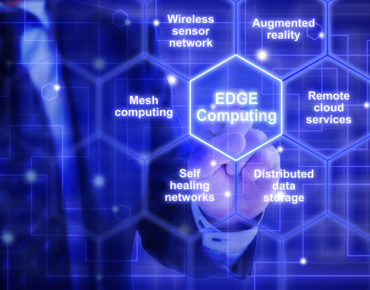Arm, Docker Partner on Cloud-to-Edge Development

Arm has over the last 18 months been rolling out a steady stream of cloud-to-edge computing and Internet of Things platforms. The IP core vendor has now moved to forge a delivery mechanism for integrating embedded devices based on its architectures to the cloud and the booming cloud-native software development community through a partnership with application container pioneer Docker.
The partners said their collaboration is intended to help cloud-native developers build cloud, edge and IoT applications on the evolving Arm architecture. The partnership is billed as the first “frictionless cloud-native software delivery model” that would provide a framework for combining embedded edge and IoT devices with cloud-native applications and platforms.
The partners said their delivery model addresses the exponential growth of data from IoT and other connected devices that are clogging networks. The bottlenecks are making central processing impractical and expensive. As edge and IoT architectures emerge that seek to move processing power closer to data, the partners said Wednesday (April 24) they will offer “a common software pipeline for cloud, edge and IoT, allowing developers to remove the dependencies of applications from infrastructure, while gaining delivery and production frameworks.”
Docker said the partnership means about 2 million Docker developers would be able to build cloud-native applications that also run on connected devices based on the Arm architecture. “Extending to the edge furthers our enterprise vision of providing one single platform for building and running all applications,” said David Messina, Docker’s executive vice president of strategic alliances.
With Arm and Docker developers working in tandem, the partners said they could now utilize Arm’s 64-bit Neoverse cores that support Amazon Web Services (NASDAQ: AMZN) cloud instances running on the cloud vendor’s Graviton processors. The partnership also makes Docker containers available to Arm developers “as an extension of the Arm Neoverse platform” released in February.
Arm has been betting the farm on edge and IoT processing since it was acquired by the Japanese technology powerhouse SoftBank Group (OTCMKTS: SFTBY) in July 2016. At the time, SoftBank Chairman Masayoshi Son projected 1 trillion devices by 2035. Hence, the chip vendor is moving aggressively to provide “heterogeneous and distributed [computing] from cloud to edge,” said Mohamed Awad, Arm’s marketing vice president.
The partners claimed to be covering the entire software lifecycle, from embedded and cloud-native software development to production workloads that would be available as part of Docker’s enterprise container platform. They added that the initial phase of the partnership would integrate Arm’s developer tools with Docker’s desktop platform.
From there, the partners will collaborate on application development and secure device management, unified development for “heterogeneous compute” and consolidating edge computing workloads via cloud-native scaling.
Under the partnership, the enterprise version of Docker Engine, the underlying infrastructure that builds and runs application containers, will use AWS cloud instances running the Arm-based Graviton CPU. The processor combines Neoverse cores with the cloud vendor’s custom silicon.
Docker said the combination of those AWS instances and “scaled-out containerized applications” running on the Arm architecture with support from Docker could yield cost savings of as much as 45 percent. In some cases, cloud-native Linux applications could run without modifications.
Related
George Leopold has written about science and technology for more than 30 years, focusing on electronics and aerospace technology. He previously served as executive editor of Electronic Engineering Times. Leopold is the author of "Calculated Risk: The Supersonic Life and Times of Gus Grissom" (Purdue University Press, 2016).











